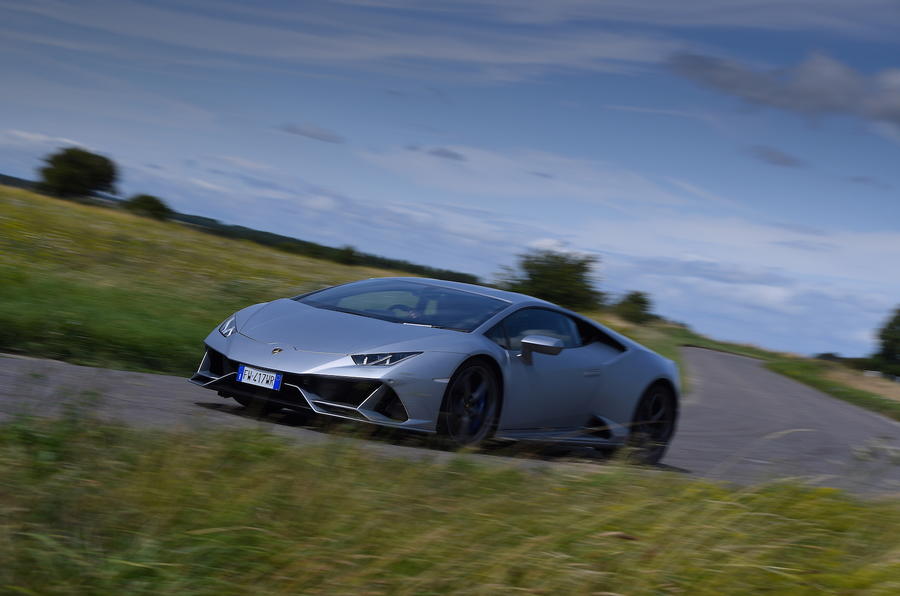What is it?
It’s not often you find worthwhile, literal meaning in a car’s name, but the Lamborghini Huracán Evo is one such car. So extensive is the roster of updates the Sant’Agata firm has introduced to its junior supercar that referring to it as a mere facelift doesn’t quite seem to do it justice.
In practically every way you could care to think of, this represents Lamborghini a bona fide evolution of the Huracán breed. The standard car was certainly a highly likeable member of the supercar class, but its charm came more from the ferocity and uniqueness of its naturally aspirated V10 engine than any ability to impress on road or track with seemingly endless reserves of balletic grace and agility. The Evo sets out to right the wrongs of its predecessor and more closely align what is now the entry-level Lamborghini Huracán with its fantastically visceral, hugely capable big brother, the Performante.
Adopting the uprated engine from that lightweight, track-focused special is a good place to start. As in the Performante, the Huracán Evo’s 5.2-litre naturally aspirated V10 gains titanium inlet valves and a new lightweight exhaust system, as well as a hike in performance that increases power to 631bhp at 8000rpm and torque to 443lb ft at 6500rpm. Admittedly, the software that governs the engine isn’t the same, but the Huracán Evo will still dispatch the 0-62mph sprint in 2.9sec and go on to hit a top speed in excess of 202mph.
Elsewhere, the Huracán gains rear-wheel steering and torque vectoring, and its magnetic dampers, dynamic steering rack and traction control systems have all been extensively updated. Tweaks have also been made to its exterior, so that it not only looks more aggressive but is more aerodynamically efficient, too.
Of all these modifications, though, it’s the introduction of what is effectively a new central brain that stands out as the most significant. It’s called the Lamborghini Dinamica Veicolo Integrata (LDVI), and its job is to process the vast amounts of information relayed to it from all of these systems and coordinate their combined, immediate response. The theory is that this should make the Huracán Evo not only far better at reacting to changes to its immediate environment but also capable of predicting what might be coming next – from both the driver and the topography under wheel.
It all kind of puts us in mind of the Matrix, specifically the part where Neo plugs himself into a computer so that a range of different martial arts can be uploaded directly to his brain. As that ‘training’ programme did for Neo, LDVI sets out to rewire the Huracán, making it harder, better, faster and stronger. It’s tempting to say that it now knows kung fu, but we won’t.
Lamborghini Anyway, when we drove the Huracán Evo on track in Bahrain earlier this year, we found these changes came as a revelation. This was a car far sharper, far more agile and far more rewarding than its predecessor ever was. Now, though, it’s time to see how the Huracán Evo copes with the task of dealing with Britain’s less-than-stellar road network.














































Join the debate
Add your comment
The new brain might well make
The new brain might well make it better. I could improve it too. Make it RWD, manual box, nice and simple. Cant promise they would sell any, but i would prefer it that way
Huracan still ticks the right supercar boxes
The 720S is no doubt the more complete and better supercar. But in the key areas that matter for a supercar, especially THAT engine, the Huracan for me trumps the McLaren and it's because of that, I'd always plump for the Lamborghini. Even if overall it's not as good as the superb 720S.
Lanehogger wrote:
I'm with you on that - I'd buy it just for the engine.